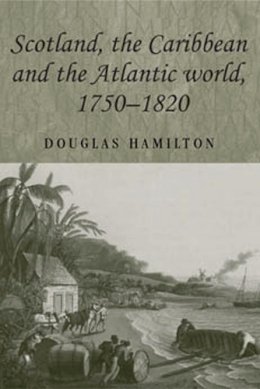
Stock image for illustration purposes only - book cover, edition or condition may vary.
Scotland, the Caribbean and the Atlantic World, 1750–1820
Douglas J. Hamilton
€ 26.99
€ 26.75
FREE Delivery in Ireland
Description for Scotland, the Caribbean and the Atlantic World, 1750–1820
paperback. .
This is the first book wholly devoted to assessing the array of links between Scotland and the Caribbean in the later eighteenth century. It uses a wide range of archival sources to paint a detailed picture of the lives of thousands of Scots who sought fortunes and opportunities, as Burns wrote, ‘across th’ Atlantic roar’. It outlines the range of their occupations as planters, merchants, slave owners, doctors, overseers, and politicians, and shows how Caribbean connections affected Scottish society during the period of ‘improvement’. The book highlights the Scots’ reinvention of the system of clanship to structure their social relations ... Read more
This is the first book wholly devoted to assessing the array of links between Scotland and the Caribbean in the later eighteenth century. It uses a wide range of archival sources to paint a detailed picture of the lives of thousands of Scots who sought fortunes and opportunities, as Burns wrote, ‘across th’ Atlantic roar’. It outlines the range of their occupations as planters, merchants, slave owners, doctors, overseers, and politicians, and shows how Caribbean connections affected Scottish society during the period of ‘improvement’. The book highlights the Scots’ reinvention of the system of clanship to structure their social relations ... Read more
Product Details
Publisher
Manchester University Press
Number of pages
268
Format
Paperback
Publication date
2010
Series
Studies in Imperialism
Condition
New
Weight
411g
Number of Pages
264
Place of Publication
Manchester, United Kingdom
ISBN
9780719071836
SKU
V9780719071836
Shipping Time
Usually ships in 4 to 8 working days
Ref
99-2
About Douglas J. Hamilton
Douglas Hamilton is a Lecturer in History at the University of Hull -- .
Reviews for Scotland, the Caribbean and the Atlantic World, 1750–1820
There is no comparable study and this book would find a welcome place on the reading lists of graduate students and historians of the Atlantic world.'
.
.
